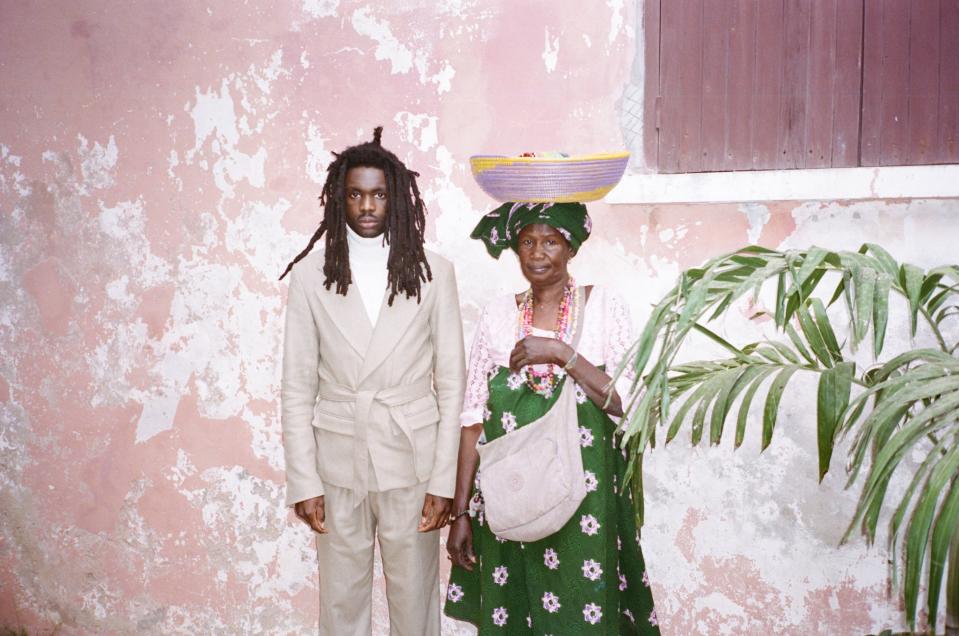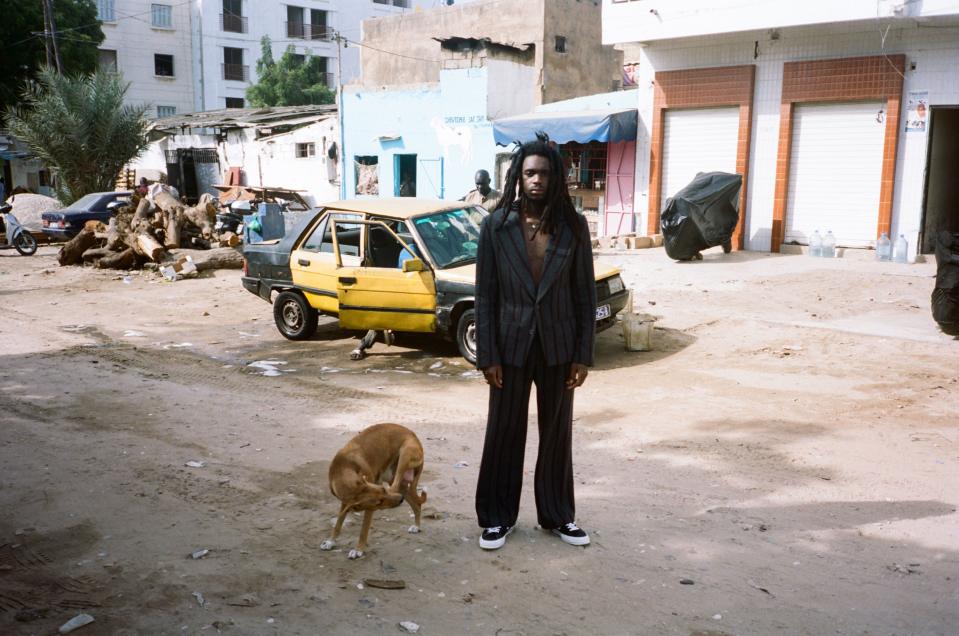This New Line of Suiting Is a Love Letter to 1970s West African Excellence
This New Line of Suiting Is a Love Letter to 1970s West African Excellence




Like many young men of his generation, 29-year-old Daquisiline Gomis grew up with a wardrobe of streetwear. Up until his brother’s wedding three years ago, the closest Gomis came to tailoring was a slim-fit retro Adidas tracksuit. “It wasn’t what you’d call a traditional suit. I didn’t wear a necktie; I honestly didn’t know how to tie one,” the Parisian designer said of the gray vintage-inspired ensemble he had made for his brother’s big day. “But the feeling of pride and preparedness was the same, and that’s how I remember my dad carried himself in his suits.”
Named Beni after the French word for blessed, Gomis’s new line of suiting is a love letter to his father and the community of well-dressed, like-minded young West African men who immigrated to France in the 1970s. Though his career as a mechanic demanded overalls, his dad would leave for work every day dressed in a spiffy three-piece, “as if he was going to Sunday mass. So sharp! I never saw him wearing anything else,” exclaims Gomis. He has fond memories of family gatherings where his father and uncles would dress to outdo each other, accessorizing their tweeds with groovy tinted sunglasses and perfectly coiffed Afros. “It didn’t matter what struggles they faced. For them, wearing a suit was a show of strength, a display of elegance,” he says. “I used to beg my dad to buy me Nikes, but in his mind, that wasn’t what a man should wear. He bought me hiking boots instead.”
Gomis brings his origin story full circle with the first lookbook for Beni, which was shot amid the colorful cityscapes of Senegal, his father’s homeland. Part street casting, part self-portraiture, the imagery is a throwback to the exuberance of a newly independent nation—to cult Senegalese movies of the 1970s such as Djibril Diop Mambéty’s Touki Bouki and dapper Afropop outfits like Orchestra Baobab and Bembeya Jazz National from neighboring Guinea. Modeled by a handsome local wrestler, the baby blue double-breasted blazer and slightly cropped flared pants would look right at home in a 1960s Malick Sidibé photo. Ditto for the belted beige wool suit—one of three core styles in the collection—that the designer layers over a turtleneck sweater while lounging in the gorgeous mid-century modern house of Senegalese sculptor Ousmane Sow.
For now, Gomis is making his suiting in Paris where he runs two Afro-vegan eateries with his wife, chef Coralie Kory, though he soon plans to shift to a more sustainable production model in Senegal using linen and hemp dyed with by-products from the restaurants’ kitchens—avocado skins, turmeric, and the like. “I see a lot of young people in my community who feel crushed by the system, who are lacking in confidence. And that’s made me think about how we can bring back some of the hope of our parents’ generation,” he says. Sadly, Gomis’s father passed away last year, a few months before Beni came into being, though the designer is certain his dad would be proud. “Clothes can’t necessarily change the world, but they can represent hope,” he says. “I like to think of each suit as a small benediction.”

